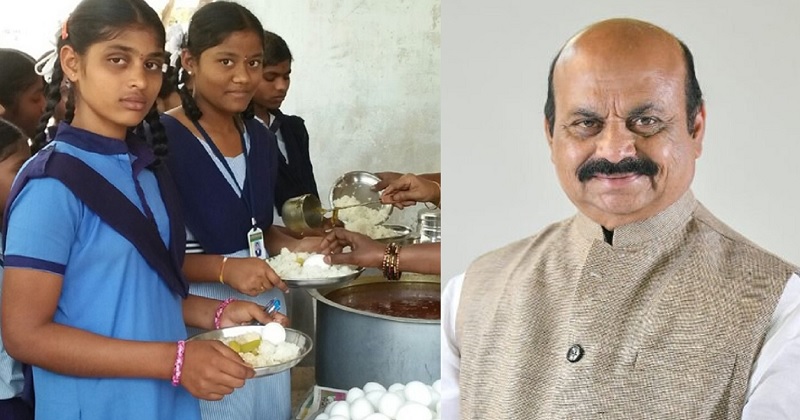India's caste divide stirs a strange controversy: eggs

The egg controversy has been bubbling up ever since the Modi-led right-wing Hindu nationalist Bharatiya Janata Party (BJP) came into power, with Madhya Pradesh being one of the first states that disallowed serving eggs in Mid-day meals.
Suchitra | TwoCircles.net
KARNATAKA — When the Karnataka government recently declared that eggs will be included in mid-day meals in numerous areas across the state, the move was met with outrage among religious organisations. Seers from the Lingayat and Jain groups have been outspoken in their opposition to the ruling, arguing that it violates their religious beliefs.
The egg controversy has been bubbling up ever since the Modi-led right-wing Hindu nationalist Bharatiya Janata Party (BJP) came into power, with Madhya Pradesh being one of the first states that disallowed serving eggs in Mid-day meals.
A strict vegetarian, Madhya Pradesh Chief Minister Shivraj Singh Chouhan was the first to shoot down a proposal to include eggs in Anganwadi meals in 2015.
The Midday Meal Scheme is a school meal programme started in the 1960s, and all over India by the 2000s that serves lunches on working days to school-age children nationwide. It was started as a programme to better the nutritional standing of schoolchildren, as well as to incentivise education, especially for girls and children from marginalised communities.
India has the world’s largest malnourished and stunted population, largely comprising of children from Dalit and Adivasi communities. This has been made worse by the pandemic keeping schools under lockdown and increasing poverty, hunger and malnourishment, again, largely faced by Dalit and Adivasi communities.
“Eggs have never been mandatory in mid-day meals so there is no question of those who don’t eat eggs being forced to eat them. In fact, the reverse has always operated in India with 95% of children who are culturally used to eating eggs, being denied this because of the 5% vegetarians. Religion, ideology and politics determine nutrition in India more than basic science. Many families cannot afford eggs, so providing them in school will meet many of the nutritional requirements of children and help them to break out of an intergenerational malnutrition cycle,” says Dr Sylvia Karpagam, a public health researcher and doctor, who has been a fervent advocate for cultural and traditional eating practices of vulnerable communities.
There is a popular presumption that Indians are mostly vegetarians, however, this notion is not supported by statistics. According to a 2006 poll conducted by the Delhi-based Center for the Study of Developing Societies, about 60% of Indians are non-vegetarian. They consume fish, poultry, beef, and, yes, eggs.
"Religious groups that do not consume eggs primarily do not study in government schools – these schools are more frequently populated by children and youngsters who are from communities that eat meat; and also eggs. So, who's religious concerns are these? Clearly, a minority with power and political influence is prescribing what children should not consume."
Vegetarianism is frequently restricted to privileged dominant-caste Hindu societies and a few other religions, such as Jainism.
“Children from classes I to V need to get 450 calories & 12 gm protein and from classes VI to VIII require 700 calories & 15-20 gm protein in every meal. At present, their needs are not met in terms of quantity or quality.”
Eggs are considered to be the cheapest, most practical nutritious food, where alternatives like nuts are super expensive for state budgets, pulses and milk can be adulterated, and bananas cannot be stored– so what stops its active promotion, especially when the intended beneficiaries are people mostly from meat-eating communities?
“Organisations like Akshaya Patra which promote sattvic diets that are devoid of nutrient-dense foods are being given contracts for mid-day meals despite openly violating MDM guidelines. This shows that ideology is given preference over basic nutrition science when it comes to deciding MDM for children. This is an extremely dangerous trend and does not bode well for the nutrition indicators of the country.”
Suchitra is an independent journalist working on social justice, focusing primarily on gender justice. She tweets at @Suchitrawrites
